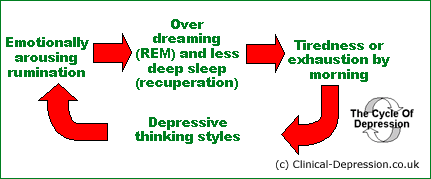Himself
New member
- Joined
- Feb 8, 2010
- Messages
- 30
- MBTI Type
- INTP
- Enneagram
- 5w4
I'm quite familiar with this topic from the perspective of suffers of anxiety, OCD, depression, schizophrenia, and bipolar disorder. The people I know who take any meds for these things need them. I am saying that there are way too many people with little shit wrong in their lives trying to fix them with SSRIs/other psych meds, instead of just getting their shit together.
I'd agree with you on that. But when you wrote things the first section I quoted in my previous post, it raised my hackles a bit, so to speak, because it resembled a lot of the misinformed sentiments I've heard from people who really know nothing about depression. It seemed to me that you were espousing a sort of, "SSRIs-are-a-crutch-for-the-weak, 'depressed'-people-should-just-buck-up-and-remember-they've-got-it-good-because-they're-not-starving-in-Africa" viewpoint, dismissive of the phenomenon overall. It seems I misunderstood you. My apologies.
Yeah, you're not suppose to go off heroine suddenly either. Read below:
"Physical dependence refers to a state resulting from chronic use of a drug that has produced tolerance [1] and where negative physical symptoms[2] of withdrawal result from abrupt discontinuation or dosage reduction.[3] Physical dependence can develop from low-dose therapeutic use of certain medications as well as misuse of recreational drugs such as alcohol. The higher the dose used typically the worse the physical dependence and thus the worse the withdrawal symptoms. Withdrawal symptoms can last days, weeks or months or occasionally longer and will vary according to the dose, the type of drug used and the individual person.[4]"
Physical dependence - Wikipedia, the free encyclopedia
Cessation of chronic use of SSRIS, which are DRUGS, causes negative physical symptoms, because of the user's TOLERANCE to SSRIs synthetically regulating the level of serotonin in their bodies.
There are a couple of problems with what you've said here.
First of all, by referring to heroin, you run the risk of conflating substance dependence with physiological dependence. They're similar, to be sure, but they're distinct. See the DSM-IV definition for the former (bolding mine):
DSM-IV said:"When an individual persists in use of alcohol or other drugs despite problems related to use of the substance, substance dependence may be diagnosed. Compulsive and repetitive use may result in tolerance to the effect of the drug and withdrawal symptoms when use is reduced or stopped. This, along with Substance Abuse are considered Substance Use Disorders...."
Second, the very article you quoted actually goes on to list a number of substances that cause physical dependence -- things like alcohol, nicotine, and opioids, which we can all agree can be or are "addictive" in the colloquial sense. Note that while benzodiazepenes are listed, neither SSRIs nor SNRIs are. In fact, the next section goes on to say,
Physical dependence - Wikipedia said:SSRI drugs, which have an important use as antidepressants, are not considered to cause physical dependence, but it's generally accepted that they cause a discontinuation syndrome.
I was alluding to SSRI discontinuation syndrome when I referred to the so-called "brain zaps" in my previous post. You might call that splitting hairs, but the scientific community at large recognizes a distinction between SSRI discontinuation syndrome and addiction in the "conventional" sense, and unless/until new findings emerge to suggest that extended use of antidepressants of this class do in fact result in phenomena closer to the "conventional" definition of addiction, I see no reason to conflate the two.
I'm sorry you had to deal with a major depression, I had one too a few years ago, it really sucked, but I took SSRIs for 2 days and then flushed the rest. IMHO, they are garbage. If they work for you, then cheers.
I appreciate the sentiment. Thank you. I'm glad you were able to cope without them. Given the massive degree of cognitive dysfunction I was experiencing before I went on the meds, I can't imagine doing what you did myself, but I'm glad you overcame it regardless. I should also note that my therapist has played a tremendously important role in addressing the underlying issues at stake and helping me improve in the long run. She's been absolutely amazing.




 I was also very angry with my life, despite it being successful in many ways, it was very unfulflling in others, and I knew I could not live like that any longer, as I resented my daily existence, despite it being good, and that was ridiculous and disconcerting.
I was also very angry with my life, despite it being successful in many ways, it was very unfulflling in others, and I knew I could not live like that any longer, as I resented my daily existence, despite it being good, and that was ridiculous and disconcerting. I'm quite jealous
I'm quite jealous



